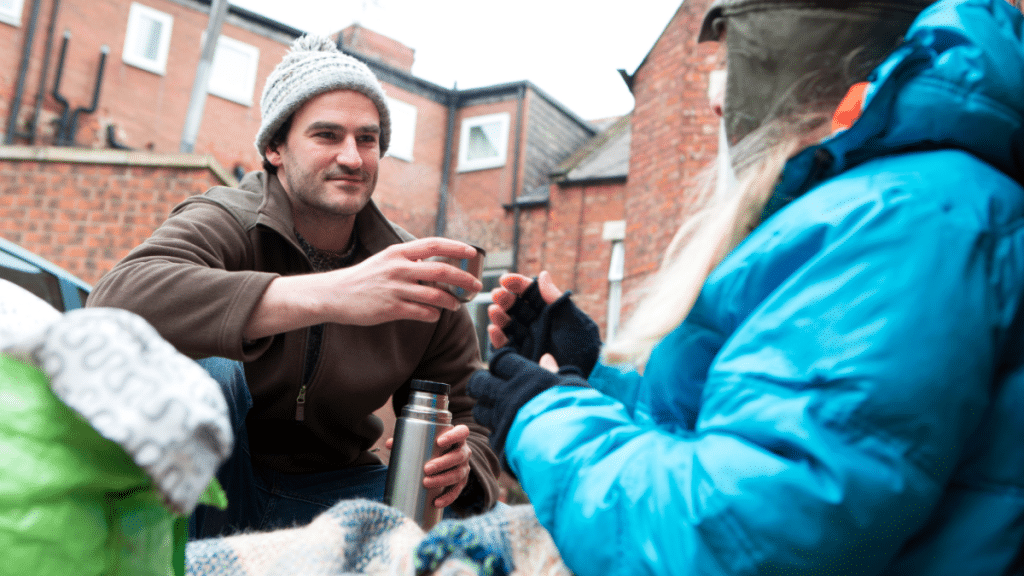Homelessness is a pressing issue that affects individuals of all ages, but its impact on children is particularly profound. Among the many challenges homeless children face, access to education often takes a significant hit. Without stable housing, children struggle with consistent school attendance, academic performance, and emotional well-being.
This article delves into how homelessness affects children’s education, the role of caregivers, and how organizations like luciesplace.org work to provide support and stability.
Lack of Stability in School Attendance
The Challenge of Frequent Moves
Children experiencing homelessness often live in shelters, motels, or temporary accommodations, leading to frequent relocations. This instability disrupts their education as they move from one school to another, often losing progress and connections with teachers and peers.
Inconsistent attendance makes it difficult for children to adapt to new curricula, which hinders their academic performance and confidence. Caregivers, whether parents or temporary guardians, play a critical role in ensuring these children attend school regularly despite their unstable circumstances.
Transportation Barriers
Many homeless families lack reliable transportation, which further complicates school attendance. Children may miss school days due to the unavailability of buses or because their temporary housing is far from their school district. Programs that provide transportation assistance can bridge this gap, ensuring that children have consistent access to education.
Academic Challenges
Falling Behind Academically
Homeless children often struggle academically due to gaps in their education caused by frequent moves and absenteeism. Missing foundational lessons can make it hard for them to keep up with their peers, leading to a cycle of frustration and disengagement.
Schools and caregivers must work together to identify these gaps and provide tailored support, such as tutoring or remedial programs, to help children catch up.
Lack of Resources
Homeless children often lack access to basic educational tools like textbooks, computers, or even a quiet place to study. These resource gaps widen the achievement gap between them and their housed peers.
Organizations like Lucie’s Place strive to address these disparities by providing resources and support that enable children to focus on their education.
Emotional and Social Impact
Increased Stress and Anxiety
Homelessness takes a toll on children’s mental health, often leaving them feeling stressed, anxious, or even depressed. The uncertainty of their living situation and the stigma of being homeless can affect their ability to concentrate in class and participate in school activities.
Giving emotional support and reassurance depends much on caregivers.. Schools can also provide counseling services to help children manage their stress and stay focused on their studies.
Difficulty Building Friendships
Frequent moves and social stigma make it challenging for homeless children to form and maintain friendships. Feeling isolated can lead to disengagement from school and a lack of motivation to participate in group activities or class discussions.
Schools can foster inclusive environments where children from all backgrounds feel welcome, helping to reduce the social barriers faced by homeless students.
Health and Nutrition Issues
The Link Between Homelessness and Poor Health
Homeless children often face health challenges due to inadequate access to medical care, nutritious food, and safe living conditions. Poor health can result in frequent absences and an inability to perform well academically.
Programs that provide meals at school and access to health services can alleviate some of these issues, ensuring that children are physically ready to learn.
Hunger and Its Effect on Learning
Hunger is a common issue among homeless children, and it directly impacts their ability to focus and retain information. School meal programs, such as free breakfast and lunch initiatives, are critical in ensuring that children have the energy to succeed academically.

Role of Caregivers in Supporting Education
Advocating for Stability
Caregivers are often the most significant advocates for homeless children, working tirelessly to ensure they have access to education and stability. From securing transportation to coordinating with schools about special needs, caregivers play a pivotal role in bridging the gap between homelessness and academic success.
However, caregivers often need additional support themselves. Organizations like Lucie’s Place provide resources to caregivers, empowering them to help children navigate the challenges of homelessness.
Encouraging Emotional Resilience
Providing emotional support is another critical role caregivers play. Helping children build resilience and a positive outlook despite their circumstances can boost their confidence and academic performance. Simple acts of encouragement and reassurance can make a significant difference in a child’s educational journey.
How Organizations Are Helping
The Work of Lucie’s Place
Organizations like Lucie’s Place are essential in addressing the challenges faced by homeless children. By providing housing support, educational resources, and emotional counseling, they help children and their families create a foundation for success.
Lucie’s Place also focuses on creating stable environments where children can thrive, ensuring they have the tools and support needed to continue their education without interruption.
Community and School Programs
Community and school-based programs are also stepping in to fill the gaps. These initiatives provide tutoring, transportation, and mentorship opportunities to ensure that homeless children have equal access to education. Collaboration between schools, caregivers, and community organizations is key to creating sustainable solutions.
Conclusion
Homelessness profoundly impacts children’s education, affecting their attendance, academic performance, and emotional well-being. However, with the support of caregivers, schools, and organizations like Lucie’s Place, these challenges can be mitigated.
